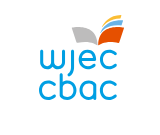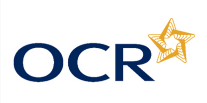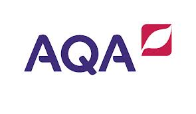Find out everything you need to know about examinations at our school, from contact details to exam boards.
Find out everything you need to know about examinations at our school, from contact details to exam boards.

Students are encouraged to start revision as soon as possible, with the summer holidays between Year 10 and 11 being the ideal starting point. After school booster sessions for core and non core subjects commenced in the 2024 Autumn Term. The schedule for these boosters can be found under our Intervention's Page. We also recommend purchasing subject specific revision guides - your teacher will advise you as to the most suitable. Lift Kingsley publishes a Knowledge Organiser each term, which can be viewed and downloaded from our website under the Teaching and Learning page. This document contains key facts and information related to each subject that learners need to have a basic knowledge and understanding of a topic. We also have Pre-Public Examinations (PPE) that take place in December and March each academic year and students should take these extremely seriously because their outcomes help to:
Exam entries are submitted in early Spring. Depending on the exam, the fees per student per exam range from £15.00 to £30.00. Our assumption will always be that a child will complete all the work necessary to get the best possible outcomes for the exam and so all students are always entered for all, or almost all, the exams for the subjects they are studying. If a child fails to attend the exam or fails to fulfil the pre-exam criteria, therefore, we will ask for payment of the exam fee.
Students should take time to check their GCSE statement of entry. Please note that most morning examinations begin at 9:00am and afternoon examinations begin at 1:30pm. Students arriving late may not be allowed to sit the exam, due to exam regulations, and parents/carers will therefore be charged the exam fee. If there are clashes (and it is likely there will be), please confirm with the Exams Manager immediately to ensure she is aware. If a student is unable to attend an examination it is important to telephone the school to inform the Exams Manager by 8:30am and to obtain a doctor’s medical note, which should be passed on to the Exams Manager within 24 hours. This will allow us to ask the Exam Board for dispensation and your child may not fail the exam.
The awarding bodies have collectively agreed a contingency day for several years now which is always scheduled at the end of the GCSE, GCE AS and A-level exam timetables. The contingency days are in the event of national or significant local disruption to exams in the United Kingdom, being part of the awarding bodies’ standard contingency planning for exams.
Following the Covid-19 pandemic, further resilience was needed within the exam timetables. A single contingency day was not felt to be sufficient if a national event or incident had a significant effect on the exam timetable. For example, summer exams could be affected by extremely high temperatures. For the June 2026 exams, the awarding bodies have therefore introduced two additional half-day contingency sessions. These are on Wednesday 10 June 2026 and Wednesday 24 June 2026. Candidates and parents should consider the contingency days and note Wednesday 24 June 2026 as the final date when making their plans for the summer. Candidates should be encouraged to remain available until Wednesday 24 June 2026 should examinations need to be rescheduled. The awarding bodies have collectively agreed a contingency day for several years now which is always scheduled at the end of the GCSE, GCE AS and A-level exam timetables.
Click here to open the exams schedule
This notice has been produced on behalf of :
AQA, City & Guilds, CCEA, OCR, Pearson and WJEC Information for candidates:
GCE, ELC and Project qualifications - coursework assessments
This tells you about some things that you must and must not do when you are completing coursework.
When you submit any coursework for marking, you will be asked to sign an authentication statement confirming that you have read and followed these regulations.
If there is anything that you do not understand, you must ask your teacher.
Coursework provides you with an opportunity to do some independent research into a topic. The research you do will involve looking for information in published sources such as textbooks, encyclopaedias, journals, TV, radio and on the Internet.
Using information from published sources (including the internet) as the basis for your coursework is a good way to demonstrate your knowledge and understanding of a subject. You must take care how you use this material though - you cannot copy it and claim it as your own work.
The regulations state that:
“you must not copy from someone else or allow another candidate to copy from you”.
If you use the same wording as a published source, you must place quotation marks around the passage and state where it came from. This is called “referencing”. You must make sure that you give detailed references for everything in your work which is not in your own words. A reference from a printed book or journal should show the name of the author, the year of publication and the page number, for example: (Morrison, 2000, pg.29).For material taken from the internet, your reference should show the date when the material was downloaded and must show the precise web page, not the search engine used to locate it. This can be copied from the address line. For example: (https://www.bbc.co.uk/bitesize/guides/zw3wxnb/revision/1), downloaded 5 February 2022.
You must also include a bibliography at the end of your work. This must list the full details of publications you have used in your research, even where these are not directly referred to, for example: Morrison, A. (2000) “Mary, Queen of Scots”, London: Weston Press. If you copy the words or ideas of others and do not show your sources in references and a bibliography, this will be considered as cheating.
Your parent/carer may provide you with access to resource materials and discuss your coursework with you. However, they must not give you direct advice on what should and should not be included.
If you worked as part of a group on an assignment, for example undertaking field research, you must each write up your own account of the assignment. Even if the data you have is the same, the description of how that data was obtained and the conclusions you draw from it should be in your own words.
You must meet the deadlines that your teacher gives you. Remember - your teachers are there to guide you. Although they cannot give you direct assistance, they can help you to sort out any problems before it is too late.
If you receive help and guidance from someone other than your teacher, you must tell your teacher who will then record the nature of the assistance given to you.
Take care of your work and keep it safe. Don’t leave it lying around where your classmates can find it. You must always keep your coursework secure and confidential whilst you are preparing it; do not share it with your classmates. If it is stored on the computer network, keep your password secure. Collect all copies from the printer and destroy those you do not need.
Don’t be tempted to use essays from on-line essay banks - this is cheating. Electronic tools used by awarding bodies can detect this sort of copying. You must not write inappropriate, offensive or obscene material.
Plagiarism involves taking someone else’s words, thoughts or ideas and trying to pass them off as your own. It is a form of cheating which is taken very seriously.
If your work is submitted and it is discovered that you have broken the regulations, one of the following penalties will be applied:
The awarding body will decide which penalty is appropriate.

As Wales’ largest awarding body, at WJEC we provide trusted bilingual qualifications, straight-forward specialist support, and reliable assessment to schools and colleges across the country. With more than 75 years’ experience, we are also amongst the leading providers in both England and Northern Ireland.

Give students a strong start — from learning to read to preparing for further study & the workplace.

At Cambridge University Press & Assessment, we're focused on meeting the needs of our learners, authors and customers by combining research, teaching, learning and assessment.

OCR is a leading UK awarding body. We provide qualifications which engage people of all ages and abilities at school, college, in work or through part-time learning programmes.
Our general and vocational qualifications equip students with the knowledge and skills they need for their future, helping them achieve their full potential..

Our UK qualifications are highly valued by employers and universities around the world. They are taught mainly in schools and colleges and include GCSEs, AS and A-levels, the Extended Project Qualification and Technical Awards.